Kenichi Miyajima
출생 : 1895-07-04, Tokyo, Japan

Adaptation of Seicho Matsumoto's novel of the same name.
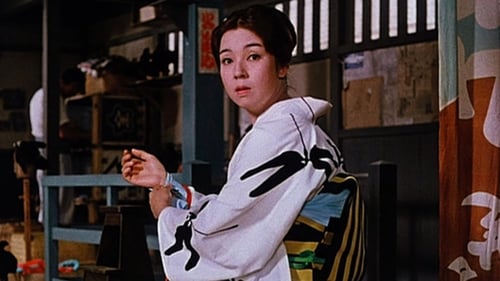
Aiko's father
고마주로의 유랑극단이 가부키 공연을 한다는 소식에 동네 사람들은 기대에 부푼다. 그런데 사실 고마주로는 이곳에 사는 고야와 사랑했던 사이로, 그를 삼촌으로 알고 자란 기요시라는 아들까지 두었다. 한편, 고마주로를 흠모하던 여배우 스미코는 그의 비밀을 알게 되자 질투심에 휩싸인다.
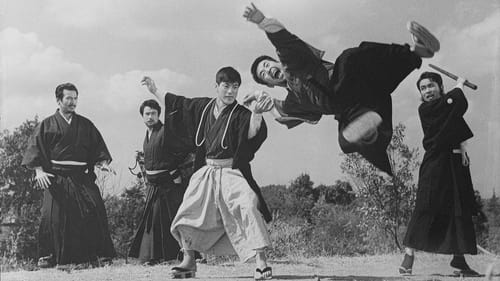
The picture tells of a tremendous conflict between ju-jitsu, an aggressive art practiced by vicious hoodlums led by Takamatsu, and judo, which is used only for self-defense and championed by Sugawara. All of which, comes to a mighty match between Sugawara and Takamatsu. It's loaded with dynamite, so to speak, and lasts five minutes on the screen, Sugawara, wins. Takamatsu, a poor loser, and his four ju-jitsu hoodlum companions later ambush Sugawara in the woods. This turns out to be a mortal combat. You'd like to learn the outcome, wouldn't you?

Gohei
While working in an education center for lonely children, a mother seeks her missing son.

Hayase, a schoolteacher, assists Sakai in editing a German-Japanese dictionary. Hayase owes much to Sakai, as Sakai raised him for 13 years after Hayase lost his parents in a war. Hayase has been secretly married to Otsuta, a former geisha, and has been unable to tell Sakai of the marriage, aware as he is that Sakai wants him to marry his daughter, Taeko. Otsuta wants Hayase to tell Sakai about her, but understands the difficulty of his position. At a festival, Otsuta is mistaken for a pickpocket and taken to the police. Because of her background as a geisha, newspaper reporters eagerly delve into her past and report that she has been married to Hayase. Unaware of what has been printed in the papers, Hayase decides to tell Sakai about his marriage. Sakai shows the newspaper to him and orders Hayase to part with Otsuta. Given no chance to explain, Hayase accepts Sakai's order.

Following the tragic death of his father, a young boy's family trains his horse to compete in the local derby.

A Girl isn't Allowed to Love is a 1955 Japanese film directed by Teinosuke Kinugasa.

식모살이를 하던 큰딸 몽이 임신을 하고 돌아오자, 아버지는 크게 언짢아 한다. 오빠 이노키치까지 홀몸이 아닌 그녀를 심하게 구박하자, 이를 견디지 못한 몽은 집을 나간다. 한편, 언니의 도움으로 간호학교에 다니던 상은 애인과의 결혼을 서두르지만 마음대로 되지 않는다.
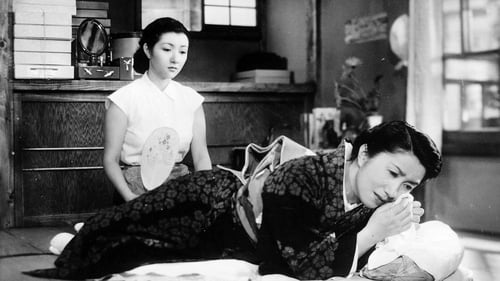
관광버스 안내원을 하는 키요코의 가족은 도쿄의 서민 동네에 살고 있다. 오빠와 두 언니, 그리고 막내 키요코의 4형제는 모두 아버지가 달라서인지 다툼이 그치질 않는다. 지긋지긋하게 싸우는 가족들의 모습에 질린 키요코는 집을 나와 하숙을 시작하게 된다. 나루세 미키오 감독이 다이에이 영화사에서 찍은 최초의 영화로 익숙하지 않은 환경에서의 촬영이었으나, 가족들이 각자의 마음을 숨긴 채 소바를 먹는 장면은 나루세 미키오 특유의 시선극을 잘 보여준다. 20세기 중반 일본 영화의 황금기를 이끌었던 거장 나루세 미키오의 대표작

Group of women escape Chinese controlled area for Japanese occupied lands during Pacific War.

Kensaku
Soichi Ataka is the eldest son of Ataka family. Although mentally challenged, he's a person with a gentle heart. Soichi's wife, Kuniko is devoted to her husband and together the couple runs the family farm. Their happy family life comes to an abrupt halt when Soichi's half-brother, Joji returns with his wife Masako after failing in a business.

Directed by Senkichi Taniguchi
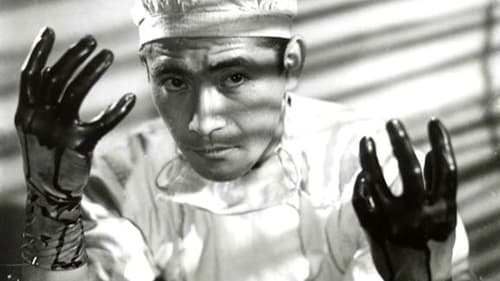
당시 군의관으로 일하던 쿄지는 매독환자를 수술 하던 중 메스에 손을 베어 자신도 매독에 걸리고 만다. 어려운 환경 때문에 치료도 제대로 못한 쿄지는 전쟁이 끝나고 고향으로 돌아오지만 매독 때문에 약혼자와의 결혼까지 포기한다. 쿄지는 자신이 매독에 걸렸단 사실을 비밀로 하지만 간호사인 미네기시는 매독치료약이 없어진 사실을 눈치챈다.
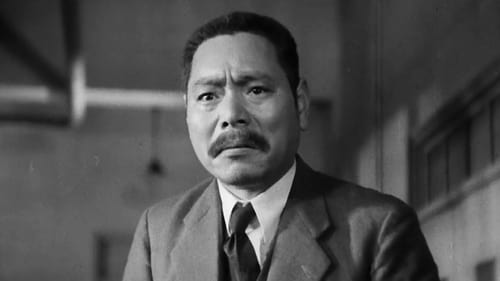
가난한 교사인 호리카와 슈헤이는 돈도 미래에 대한 희망도 없는 현실이다. 그럼에도 불구하고 그의 아들 료헤이의 성공을 위하여 온 열정과 생을 바치는데...

Kinuyo is a daughter of rice cracker shop in downtown. She fell in love with her sister's boyfriend. It is a story whose theme is warm human relationships in a town of customs and manners.

Adaptation of Kishida Kunio's novel. Set against the backdrop of a power struggle within a hospital, depicts the love lives of the director's daughter, the administrative director, a doctor, and a nurse.

Eiko is an innocent young lady born into a wealthy family with nothing to offer. She was good at singing, and lived her life playing around with her cronies, organizing music concerts and so on. However, things change when her father's business fails and she was suddenly thrown out into the world without any foundation. Eiko has no one to support her after she loses her social status, and her only tutor, Shinnosuke (Natsukawa Daijiro) was the only one who was sincere. Eiko is a stickler for using everything she can get her hands on, and she quickly moves into Shinnosuke's house.

A Japanese wartime film directed by Yasushi Sasaki.

Passenger
Episode in the life of a composer of a popular Japanese song.

The poor novelist Yamamoto is writing his novel, determined and with a headband around his head. With him, the novelist who is always in trouble paying his bills, is the girl Saya who becomes the model for his novel. Saya however is in love with a young driver. When he is forced to move into a spa town as the result of the jealousy of another man Saya is terribly sad. But with the help of Yamamoto the driver's rival can be revealed and Saya can finally be with her beloved.

Japanese silent film.
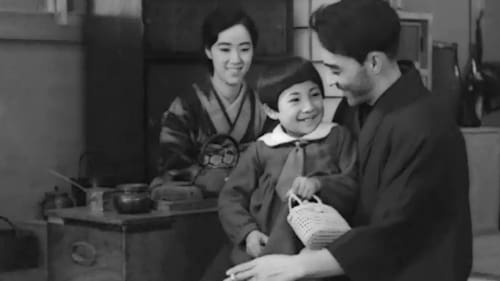
Secretary
An actress returns to Tokyo after a successful stint in Hollywood to reclaim—with the help of her gangster brother—the daughter she abandoned years before.


Kajikawa
This 1932 adaptation is the earliest sound version of the ever-popular and much-filmed Chushingura story of the loyal 47 retainers who avenged their feudal lord after he was obliged to commit hara-kiri due to the machinations of a villainous courtier. As the first sound version of the classic narrative, the film was something of an event, and employed a stellar cast, who give a roster of memorable performances. Director Teinosuke Kinugasa was primarily a specialist in jidai-geki (period films), such as the internationally celebrated Gate of Hell (Jigokumon, 1953), and although he is now most famous as the maker of the avant-garde silent films A Page of Madness (Kurutta ichipeji, 1926) and Crossroads (Jujiro, 1928), Chushingura is in fact more typical of his output than those experimental works. The film ranked third in that year’s Kinema Junpo critics’ poll, and Joseph Anderson and Donald Richie noted that 'not only the sound but the quick cutting was admired by many critics.

Part two of Shimizu's major silent Seven Seas, a family drama of the intertwining fates of the rich, decadent Yagibashis and the far less prosperous Sone family.

Katô
Kato's splendid mustache is an obstacle when it comes to finding a job. However, he gets a job as a security guard at a construction site. The president of the construction company tries to grow a mustache like Kato's and, failing, orders Kato to shave off his.
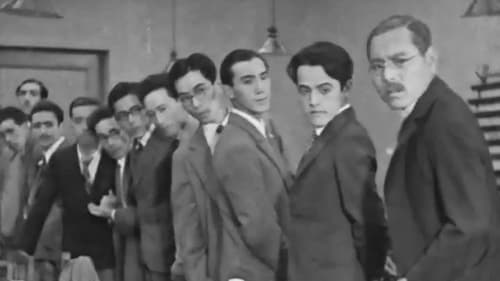
Hisho
대학을 졸업한 오카지마는 보험회사의 내근사원, 그러나 연로한 동료사원이 퇴출당하는 것을 보고 사장에게 반감을 갖게된다. 하지만 그 결과 그도 직업을 잃고만다. 지금은 서양식당을 운영 하지만 학생시절의 선생님이었던 오무라가 오카지마를 고용한다. 그리고 오카지마가 전단지 뿌리는 것을 본 그의 아내는 울음을 터트린다.

Matsubara

The 1929 Japanese film "Mother" which helped child actress Hideko Takamine become a star.

An old man known as a mining king was found killed by a “golden bullet”. The first to be suspected was the phantom thief at large known as the Benevolent Picaroon, widely talked about around town. But Inomata, the private eye investigating the case, didn’t think the killing-averse outlaw was behind the murder. A few days later, a note from the Picaroon was found at the crime scene of another wealthy household. Rushing over, Inomata finds something dubious about the behavior of the tycoon’s daughter. He calls in his buddy detective Kawanami and launches a serious probe to find out the truth. Whatever happened to the “golden bullet” — the key to the case? And who in fact is the Benevolent Picaroon?

This is a classic Japanese Ghost Story.

















